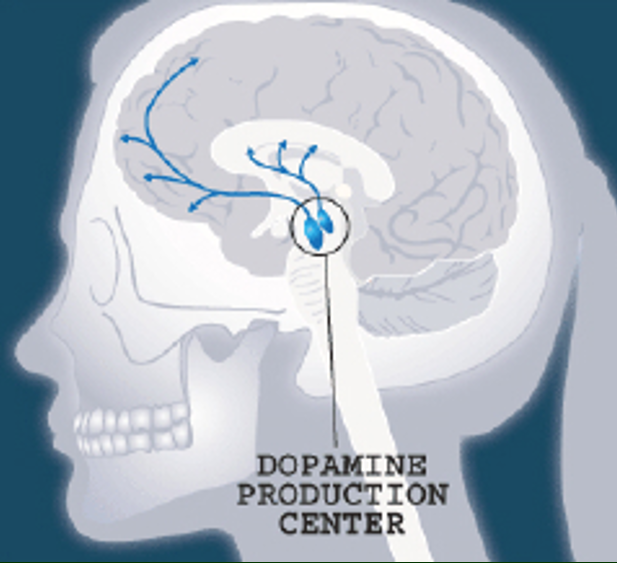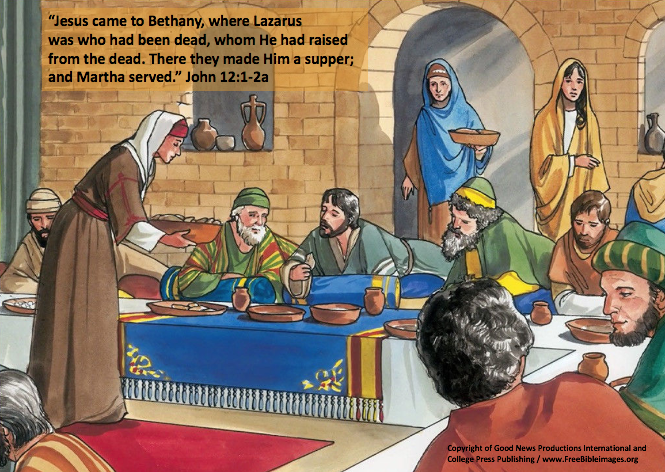“And behold, I am coming quickly, and My reward is with Me, to give to every one according to his work.” Revelation 22:12
After the angel encouraged the apostle John to get the message of Revelation out to all people even though not everyone would respond positively to that message (22:10-11), the Lord Jesus Himself then said, “And behold, I am coming quickly, and My reward is with Me, to give to everyone according to his work.” (Revelation 22:12). When the Lord Jesus says, “Behold…” He is telling us to stop what we are doing and pay attention to what He is about to say because it is extremely important. Jesus then announces, “I am coming quickly!” The Greek word translated “quickly” (tachy) means “soon, in a short time.” 1 The words “quickly” and “soon” both convey God’s perspective about His return for His church. Christ has already stated this promise earlier in the book (3:11; 22:7; cf. 22:20).
Christ is returning soon to “reward” each believer at the Judgment Seat of Christ (cf. I Corinthians 3:8-15; Romans 14:10-12) “according to his work” whether it be good or bad (22:12; cf. 2 Corinthians 5:10). The word “work” (to ergon) is singular, and therefore refers to a Christian’s life on earth (22:12; cf. I Corinthians 3:12-15). 2
If you are a Christian, the day is coming when the Jesus Who saved you eternally from the lake of fire will be your Judge to determine the degree of reward you will receive in His eternal kingdom (Revelation 22:12). But those who never believed in Jesus will be judged by Him at the Great White Throne Judgment after the Millennial Kingdom of Christ to determine the degree of their punishment in the lake of fire (Revelation 20:11-15; cf. Matthew 10:15; 23:14; Mark 12:40).
Every born-again Christian from the Church Age will stand before the Judgment Seat of Christ to give an account of how he lived or did not live his life for Christ on earth (I Corinthians 3:8-15; 2 Corinthians 5:10). This does not determine their entrance into Christ’s heaven because that was already settled the moment they received His gift of salvation through faith alone in Christ alone (Ephesians 2:8-9). God has saved us to work for Him, not for salvation (Ephesians 2:10). Christ wants to know how much we appreciate His gift of salvation. The Judgment Seat of Christ determines this. We were saved to live for Christ out of gratitude for what He has done for us.
To illustrate this, think of what it would be like to pay for your child to study and learn at college. You are paying for him or her to get a degree, not to party all the time. Given the cost of a college education, you do not want your child to waste that payment you made by partying all the time and failing their classes. As a parent, you want to know that your child is grateful for the price you paid for them to get a college education.
Likewise, Jesus wants to know how much we appreciated the free gift of salvation that He paid for when He died in our place on the cross and rose from the dead (cf. 2 Corinthians 5:15). Did we value His gift of salvation by the way we lived on earth? Did we live for Him or ourselves? The Judgment Seat of Christ shows how grateful we are for what Jesus did for us.
On Father’s Day, let’s say you take your dad to an expensive restaurant to show him how much you appreciate him. But at this restaurant they serve you leftovers and yet they charge you the full price for them. This would be an insult to you, wouldn’t it!?! No one wants to pay full price for leftovers.
Jesus Christ paid the full price for our salvation (John 19:30), yet some Christians are simply giving Him their leftovers by the way they are living on earth. This is an insult to Jesus Christ. Believers who give Christ their leftovers will suffer the loss of reward at the Judgment Seat of Christ (I Corinthians 3:15).
You may say to yourself, “Well, I just won’t show up for the Judgment Seat of Christ, so I don’t have to risk losing my reward.” That is not an option. The Bible says, “For we must all appear before the judgment seat of Christ, that each one may receive the things done in the body, according to what he has done, whether good or bad.” (2 Corinthians 5:10). Notice God says, “We must all appear.” There is no choice. This appearance is mandatory, not optional. My appearance is required, not requested. “Each one” must individually attend the Judgment Seat. No one else can do this for us.
The word “appear” (phanerōthēnai) means “to expose, to become visible, to show or reveal oneself.” 3 There will be no secrets at the Judgment Seat of Christ. Nothing that is hidden in our lives now will be overlooked by Jesus. He will fully expose every part of our lives, good or bad (cf. I Corinthians 4:5).
Christians from the Church Age will “receive” Jesus’ evaluation of their Christian life, whether that life is “good or bad.” The Greek word for “good” (agathos) “pertains to meeting a high standard of quality that is useful, beneficial, and worthy of merit.” 4 The Greek word for “bad” (phaulos) “pertains to being low-grade or morally substandard, base” 5 or “evil.” 6 This will be a very comprehensive analysis of our Christian lives on earth. Christ will look at our thoughts, words, actions, and motives to determine what, if any rewards, we will receive from Him (cf. I Corinthians 3:13; Romans 2:16; Luke 12:2; Matthew 12:36-37; I Corinthians 4:2; Hebrews 4:12-13).
Believers who are recompensed for the “good” in their lives will be recompensed with praise (Matthew 25:21-23), joy (Matthew 25:21-23), and authority and privilege (Matthew 8:11; 24:45-47; 25:21-23; Luke 19:17-18). But believers who are recompensed for the “bad” in their lives (Matthew 22:10) will experience the loss of authority and privilege (Matthew 25:28-29; Luke 19:24-26), pain (Matthew 24:51a; I Corinthians 3:15), rebuke (Matthew 25:26; Luke 19:22), sadness (Matthew 8:12; 22:13; 24:51b; 25:30), and shame (I John 2:28) at the Judgment Seat of Christ. They will still be in heaven because of their faith in Christ, but their experience in heaven will be not as rich as faithful believers’.
Knowing that every “good or bad” thing we have done during our Christian lives on earth will be repaid at the Judgment Seat of Christ, how do we want to live the remaining days allotted to us on earth? I pray we will live faithfully for our Lord Jesus to the very end.
Recently I realized an important connection between Revelation 22:10 and 22:12-14. The angel told John to “worship God” (22:10). John then explains how we can enhance our worship of God throughout eternity. We do this by earning eternal rewards during our time on earth (22:12-14).
As we have observed worship taking place in the book of Revelation, we have seen the inhabitants of heaven (“twenty-four elders” representing the church) worshiping God by casting “crowns” before God’s throne throughout eternity (4:10). Christ had honored them with these “crowns” at the Judgment Seat of Christ for their faithful service to Him (cf. Revelation 4:1-4; cf. I Corinthians 9:25; 1 Thessalonians 2:19; 2 Timothy 4:8: James 1:12; I Peter 5:4). These crowns are not meant to be worn throughout eternity, drawing attention to ourselves. “Instead, they provide us with tokens of worship, symbols of relinquishment of all personal honor, which we can lay at His feet in gratitude, submission, and reverence.” 6
It is not selfish to pursue eternal rewards because Christ approves this and even encourages it (cf. Matthew 6:19-21). “There is no ‘spiritual commercialism’ or selfishness involved in the pursuit of honor, opportunities for ministry, and the desire for maximum intimacy with Christ. These are noble and inspiring goals, fully approved by Christ and His apostles. They focus ultimately on Him, not ourselves.” 7
Throughout eternity, we can lay our crowns, these tokens of worship, at the feet of the Lord Jesus Christ, expressing our extreme gratitude and appreciation for the ultimate price He paid for our salvation. Each time the rewarded believer approaches God’s throne in heaven, he will remove his or her crown, lay it at the feet of Jesus, and worship. Each time the rewarded believer casts his crown at Jesus’ feet, he is in essence saying, “Thank You, Lord Jesus, for taking my place on the cross and dying for me.” Each crown is a beautiful token of our gratefulness for the ultimate price Jesus paid for our salvation. 8 Hence, the primary motivation for obtaining eternal rewards is found in the desire to bring more honor to Jesus as we worship Him throughout eternity! 9
Prayer: Gracious Lord Jesus Christ, thank You for drawing our attention to the fact that You are coming soon to reward every Christian from the Church Age according to the work they have done on earth, whether good or bad. While our entrance into Your heaven is based on believing in You and Your finished work on the cross, our rewards at the Judgment Seat of Christ are based on the works we have done during our lives on earth. Thank You for revealing to us that the primary motivation for obtaining eternal rewards is found in the desire to bring more honor to You as we worship You throughout eternity. Please keep this motivation at the front of our minds now so we will seek You and Your approval instead of the approval of people. In Your glorious name we pray, Lord Jesus. Amen
ENDNOTES:
1. Walter Bauer, A Greek-English Lexicon of the New Testament and Other Early Christian Literature: Third Edition (BDAG) revised and edited by Frederick William Danker (Chicago: University of Chicago Press, 2000 Kindle Edition), pg. 993.
2. Bob Vacendak; Robert Wilkin; J. Bond; Gary Derickson; Brad Doskocil; Zane Hodges; Dwight Hunt; Shawn Leach; The Grace New Testament Commentary: Revised Edition (Grace Evangelical Society, Kindle Edition, 2019), pg. 1589.
3. Walter Bauer, A Greek-English Lexicon of the New Testament and Other Early Christian Literature: Third Edition (BDAG) revised and edited by Frederick William Danker (Chicago: University of Chicago Press, 2000 Kindle Edition), pg. 1048.
4. Ibid., pp. 3-4.
5. Ibid., pg. 1050.
6. Joseph Dillow, Final Destiny: The Future Reign of The Servant Kings: Fourth Revised Edition (Grace Theology Press, 2018 Kindle Edition), pp. 1015-1016.
7. Ibid., pg. 1016.
8. Ibid., pp. 974, 1040.
9. Ibid., pg. 974.







